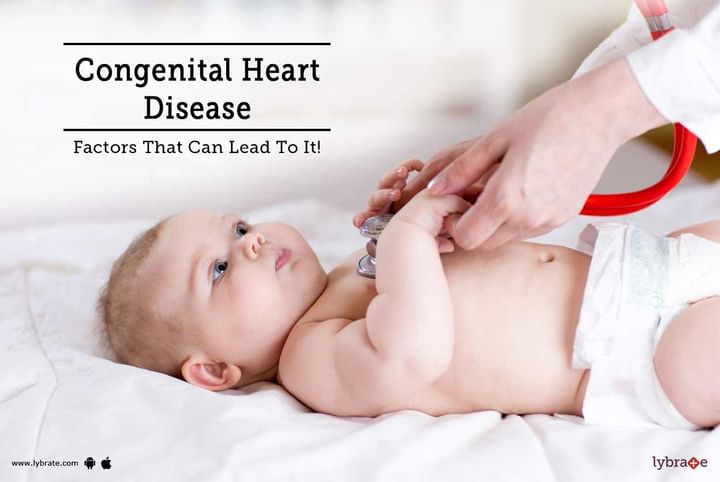Congenital Heart Disease - Factors That Can Lead To It!
Congenital Heart Disease refers to a problem in the structure of heart that is present at birth. It is one of the most common types of birth defect. The defects can arise at the walls of the heart, the valves of the heart and could also take place at the arteries and veins close to the heart. The disease causes great impact in changing the normal flow of blood through the heart.There are many different types of congenital heart defects, ranging from simple ones having no symptoms to complex defects, which are severe and life-threatening symptoms.
Symptoms
- Congenital heart defect generally is detected in women at the time of ultrasound during pregnancy. In case the doctor comes across abnormal heartbeat, he may further investigate by conducting certain tests in the form of echocardiogram, chest X-ray or MRI scan.
- This problem might be seen even in newborn babies, due to which they might experience:
- Skin, fingers, lips and toes which are bluish in colour
- Experience problem breathing
- Low weight at the time of birth
- Chest Pain
There might be other symptoms as well, which may not develop till many years after birth. The symptoms are:
- Abnormal heart rate
- Dizziness
- Frequesnt dizziness
- Swelling might be seen at certain parts of the body
Causes behind congenital heart disease
Developmental problem in the heart’s structure at an early stage is usually the reason behind congenital heart disease. This defect acts a hindrance to the normal flow of blood through the heart, thus affecting people’s breathing to some extent. Though there is no surety as to why there is a problem in the development of heart, some of the suspected causes are:
- Any of the family members might be having heart problems.
- Some prescribed drugs at the time of pregnancy tend to put a child at a higher risk for developing this problem of congenital heart disease.
- Consumption of alcohol or if you take drugs which are not prescribed by doctor during pregnancy, can lead to an increase in the risk of a child getting diagnosed with a heart defect.
- Women who have had viral infection during the first three months of pregnancy are more susceptible towards giving birth to children having heart defects.
How to treat congenital heart disease?
Like any other heart disease, treatment for congenital heart disease also depends on the type and extent of the defect.
- There are certain medicines which allow the heart for function more efficiently, while others can be used to prevent blood clots from forming and also put a check on irregular heartbeat.
- Implantable heart devices like implantable cardioverter defibrillators can prevent this particular defect by regularising an abnormal heart rate.
- Catheter procedure followed by doctors where they insert a thin tube into a vein in the leg and move up to the heart, then use small tool by threading through the catheter to rectify the defect.
- Some rare cases, when the heart disease is too complex to fix, doctor may form heart transplant surgery.



+1.svg)
